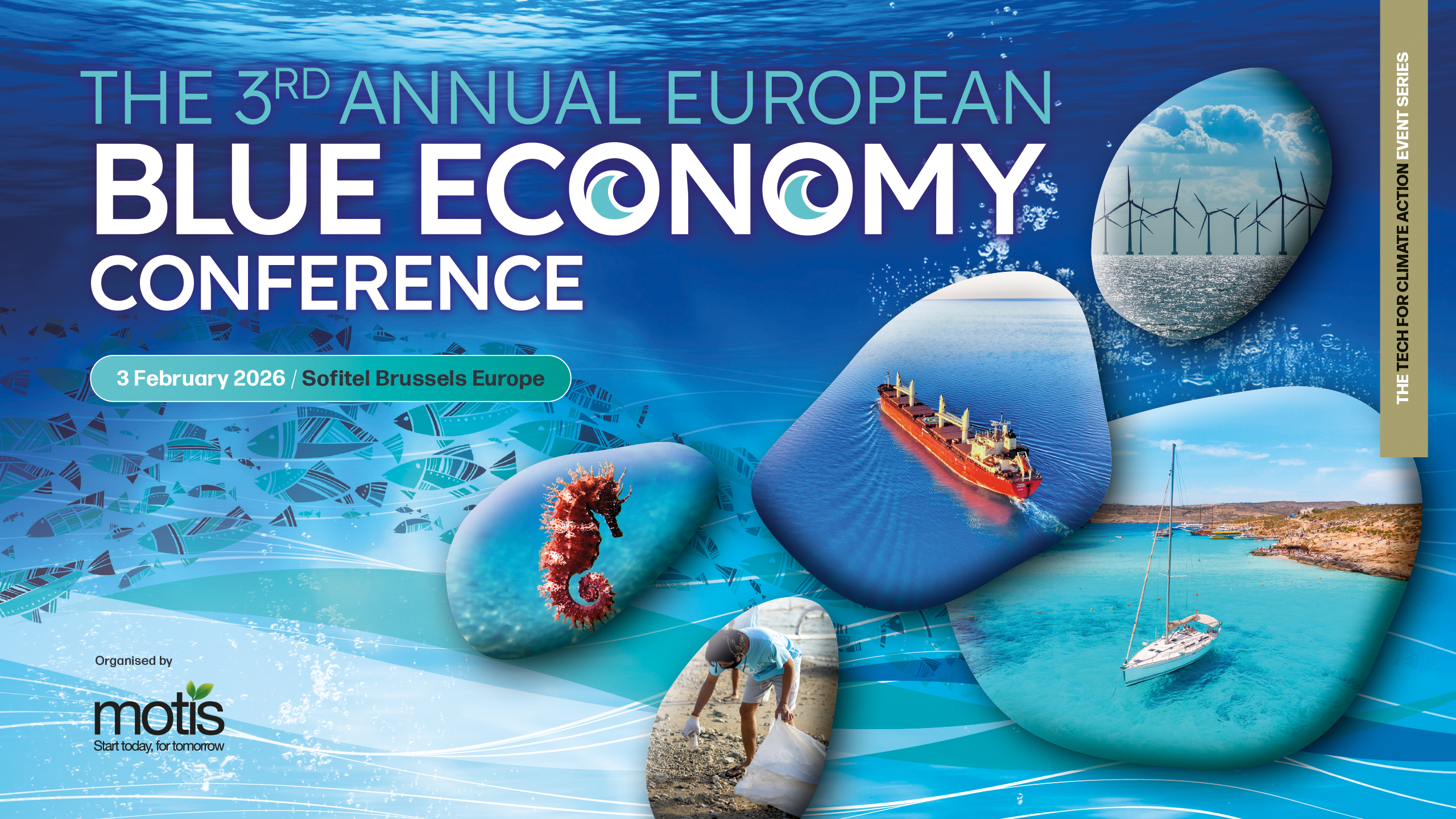
The European Blue Economy Conference returns to Brussels in February 2026 for its third edition. The conference will bring together policymakers, industry leaders and innovators to explore the future of Europe’s blue economy and its role in driving sustainability and competitiveness. Against the backdrop of growing geopolitical complexity, climate urgency, and accelerating technological innovation, this one-day forum will dive into key issues shaping the blue economy—from ocean health and marine protection to decarbonisation of shipping, offshore clean energy, and global ocean governance and security. Participants will engage in high-level dialogue on the progress made under the EU Ocean Pact, FuelEU maritime integration, and the vital role of key sectors, including ports, fisheries, aquaculture, defence and coastal tourism. With a focus on driving growth, scaling innovation, and attracting investment, the conference aims to chart a path toward a competitive, regenerative, and resilient Blue Economy for Europe and beyond.
9:05am – 9:15am Keynote Speech
Ocean health is the foundation of a thriving and competitive Blue Economy. As Europe accelerates its maritime ambitions, ensuring the long-term sustainability of marine ecosystems is no longer a moral imperative alone—it is an economic one. This session will examine the implementation and progress of the EU Ocean Pact and its alignment with wider European objectives. Participants will also address key challenges such as pollution and ecosystem degradation alongside solutions, including the expansion of Marine Protected Areas (MPAs) and the deployment of nature-based solutions.
Europe must position itself as both a leader and a collaborative partner in shaping the future of international maritime governance. This session explores how European policies—particularly the FuelEU Maritime regulation—can be aligned with IMO frameworks to avoid fragmentation and ensure the effectiveness of climate and sustainability objectives at a global scale. The session will examine the strategic importance of integrating the design elements of FuelEU into international regulatory structures, safeguarding its environmental ambition while fostering level playing fields for stakeholders. Additionally, the session will explore the role of Global Blue Partnerships in strengthening multilateral cooperation.
The European Waterborne sector is a strategic pillar to the EU’s Blue Economy and Industrial Recovery Plan. As the sector navigates profound transformation driven by climate goals, global competition and supply chain challenges, it is clear that Europe must strengthen its industrial maritime base while accelerating the green transition. This session will explore the efforts to build a competitive and sustainable and waterborne sector that delivers on the EU’s climate action plan and industrial sovereignty.
This session will explore the strategic direction of the EU’s Ports Strategy and how it can drive the transformation of European Ports into a model of sustainability, innovation, and global competitiveness. Key topics will include the pivotal role of ports as clean energy hubs, digital gateways, and enablers of circularity.
Coastal and maritime tourism is one of the largest sectors of the EU Blue Economy, providing millions of jobs and supporting the vitality of Europe’s coastal and island communities. However, the tourism sector faces increasing pressure from climate change, biodiversity loss and over-tourism that threaten its sustainability. This session will explore the work that is being done by policymakers and industry to ensure the tourism sector enables Europe’s wider climate goals and competitiveness agenda.
The Aquaculture and Fisheries sectors are integral to Europe’s Blue Economy by contributing to Europe’s food security and supporting communities across the bloc. However, the sectors are under pressure to adapt to the growing demands of climate change and environmental degradation, to global market competition. This session will explore how policymakers and industry are working together to ensure the sectors drive long-term value for people and planet.
To discuss the agenda, please contact:
Tom Chinnock at tom.chinnock@techforclimateaction.com

 Costas Kadis, EU Commissioner for Fisheries and Oceans, European Commission
Costas Kadis, EU Commissioner for Fisheries and Oceans, European Commission 
 MEP Christophe Clergeau, Vice Chair of S&D Group, Member of ENVI Committee, European Parliament
MEP Christophe Clergeau, Vice Chair of S&D Group, Member of ENVI Committee, European Parliament Member of the European Parliament, member of the Socialist Party and the Socialists and Democrats Group, where I am also one of the vice-presidents. I sit on the Environment and Public Health Committees as well as the Development and Industry, Research and Energy Committees as a substitute member. As Vice-President of the ACP-EU Parliamentary Assembly and a member of the Parliament’s Intergroup on the Sea (SEARICA), my main concerns are the Union’s industrial, food and health sovereignty, and the ecological and energy bifurcation of our continent.
Nantes and the Atlantic
First and foremost, I’m from Nantes, in love with my city and the Atlantic coast. I live here. Nantes, the ocean, the Loire and Brittany are my anchor points and feed my imagination.
Energy and the sea
As a local councillor, I was lucky enough to support the birth of a new sector of the blue economy, marine renewable energy, in the port of Nantes Saint-Nazaire. In my role as a consultant, I have continued to fight for the energy transition and renewable energies, which are one of the keys to our future. I’m still a campaigner for the sea, which I live with every day, and which represents a new horizon for our economy, as well as a major challenge for the climate and biodiversity.
European commitment
Defending the shipyards led me to become involved in the Conference of Peripheral Maritime Regions in 2011. Since 2015, I have been a member of the European Committee of the Regions, and rapporteur for numerous opinions on the blue economy, research, health and protecting populations from crises.
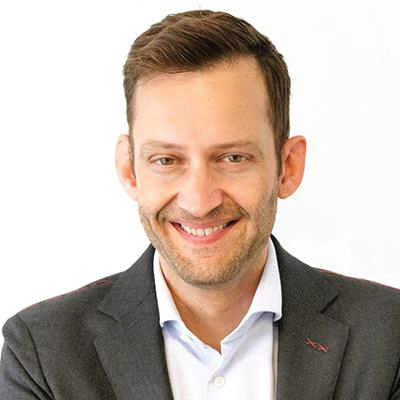
 Jaap Gebraad, Secretary General Waterborne Technology Platform
Jaap Gebraad, Secretary General Waterborne Technology Platform Jaap has worked for about 10 years as Board Secretary and Senior Project Manager of the “Bureau Innovation Research & Development” of the Foundation STC Group. He was also the Daily Secretary of the European Association EDINNA (Education in Inland Navigation). From 2018 to March 2022, Jaap was Director Research and Development Affairs at SEA Europe and Executive-Director of the Waterborne Technology Platform. Jaap holds a Bachelor’s Degree in Logistics and Economics of the University of Applied Sciences (HES) in Rotterdam.

 Eda Bayar, Expert, European Environment Agency
Eda Bayar, Expert, European Environment Agency Eda Bayar is an environmental engineer with a specialization in marine environment policies with more than 10 years of experience. Her expertise contributes to the sustainable development of Europe’s blue economy. Since August 2022, she has served as a national expert at the European Environment Agency (EEA), where she leads a key project aimed at understanding the environmental impacts, trade-offs, and co-existence practices associated with offshore wind energy. This initiative seeks to promote a sustainable balance between the expansion of renewable energy production and the protection of marine ecosystems.

 Stewart Sarkozy-Banoczy, CEO, World Ocean Council
Stewart Sarkozy-Banoczy, CEO, World Ocean Council Stewart has spent the last ten years dedicated to mainstreaming resilience and precovery across sectors and themes, with a passion for the ocean, water systems and breaking down silos between funders, practitioners, and policy makers, especially for urban, island, Indigenous and coastal contexts. Stewart was Global Director, Policy and Investments and co-founder at the Resilient Cities Network, the evolved, city-led network of the 100 Resilient Cities (100RC) program, creating the RCIFunds, co-founding/facilitating R21 and co-founding the Racial Equity through Resilience Community of Practice. During the 100RC period he served in variety of roles in Europe and the Middle East, Latin America, and the Caribbean, as well as the co-creator of the Urban Ocean Program. Stewart led the team that developed the 100RC challenge starting in April 2013, through Context Partners, where he was partner and managing director.
He is a certified associate in the Waterfront Edge Design Guidelines (WEDG) and served as advisory board member for the Capitol Hill Ocean Week (CHOW). Stewart has formal degrees, certification and training in international business, foreign languages, corporate social responsibility, conservation, and environmental science.
Stewart is also the founder of Precovery Labs, where creativity and community drive impact and awareness for clients like RISE- Coastal Resilience Innovations, Ocean Conservancy, Opportunity Finance Network, NDN Fund/Collective, and Conservatoire d’Littoral, among others. Through Precovery Labs, he is also an active professional documentary and fine art photographer, visualizing stories of change and impact.

 Tobias Troll, Marine Policy Director, Seas At Risk
Tobias Troll, Marine Policy Director, Seas At Risk Tobias Troll is Marine Policy Director at Seas At Risk and oversees the work of the biodiversity team. He has explored the question of systemic change and a just transition to a world beyond exploitation of people and planet for over a decade, previously as Europe Director of the EDGE Funders Alliance (‘Engaged Donors for Global Equity’) and with CONCORD, the European Confederation of Development NGOs. He holds a MA in Communication from the Berlin University of the Arts, and a MA in Development Education from University College London (dissertation: “Another World is Happening. Towards a Great Transition through a Global Citizens Movement”). He is passionate about systemic change, rethinking masculinity, cycling, sauna and the ocean.
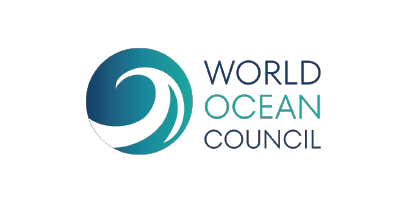

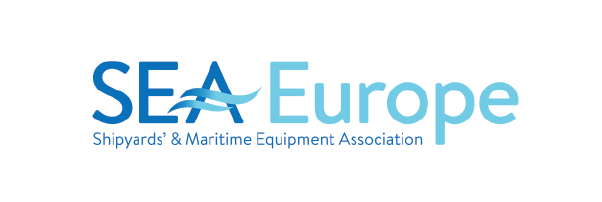
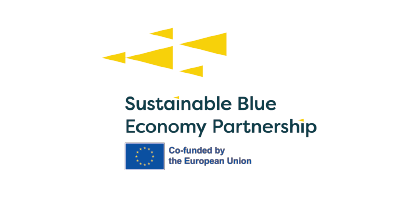
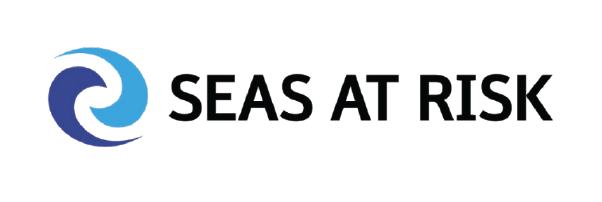
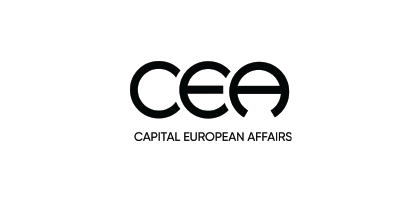
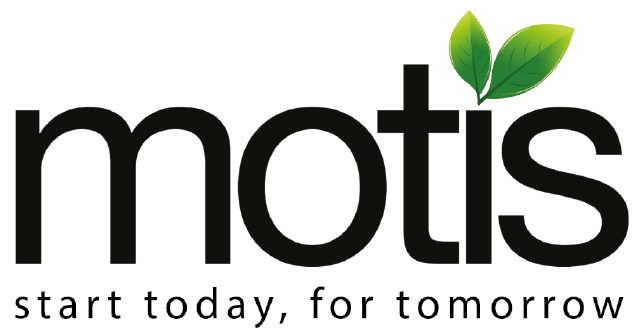
MotisCo is an events organizer and events consultancy business. We specialize in bringing communities together to address the world’s most pressing challenges. Through our own initiative events and strategic partnerships, our goal is to support existing efforts and build new networks to achieve meaningful change. The choices we make now will have a profound impact on our future. Start today, for tomorrow.
For more information on any aspect of this event, please contact
Tom Chinnock
Disclaimer: The content of this website has not been approved by the United Nations and does not reflect the views of the United Nations or its officials or Member States